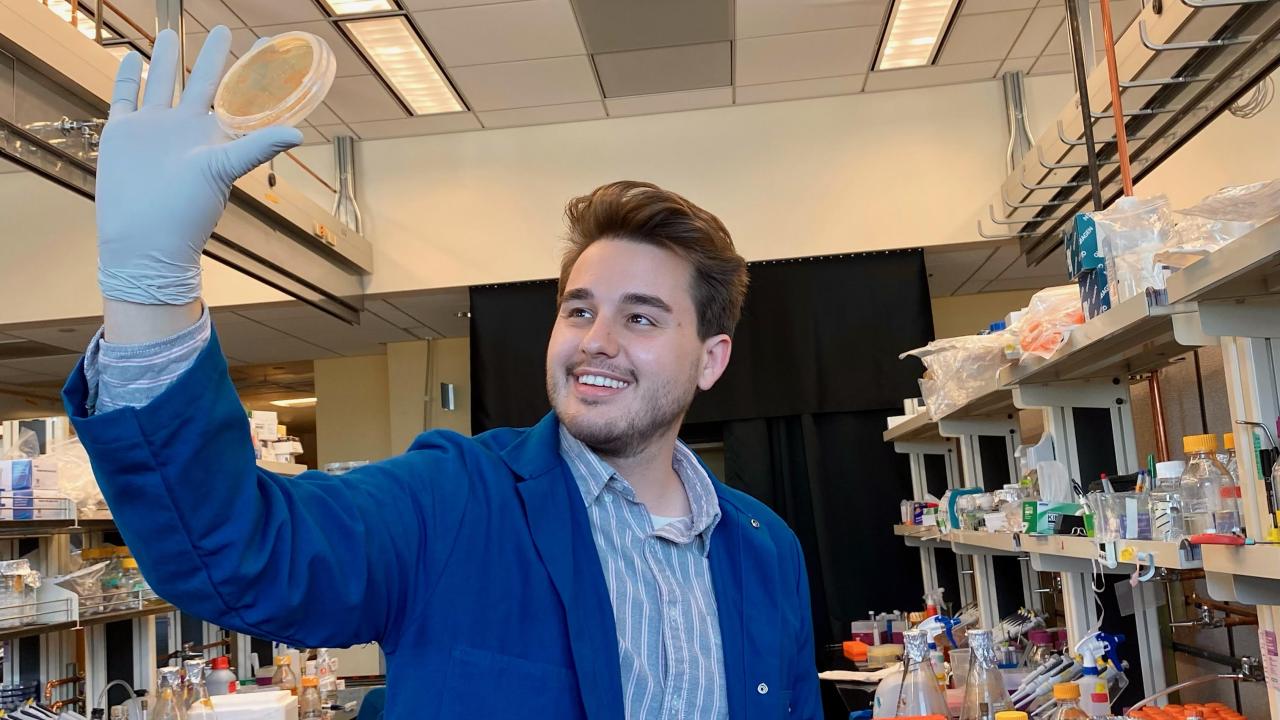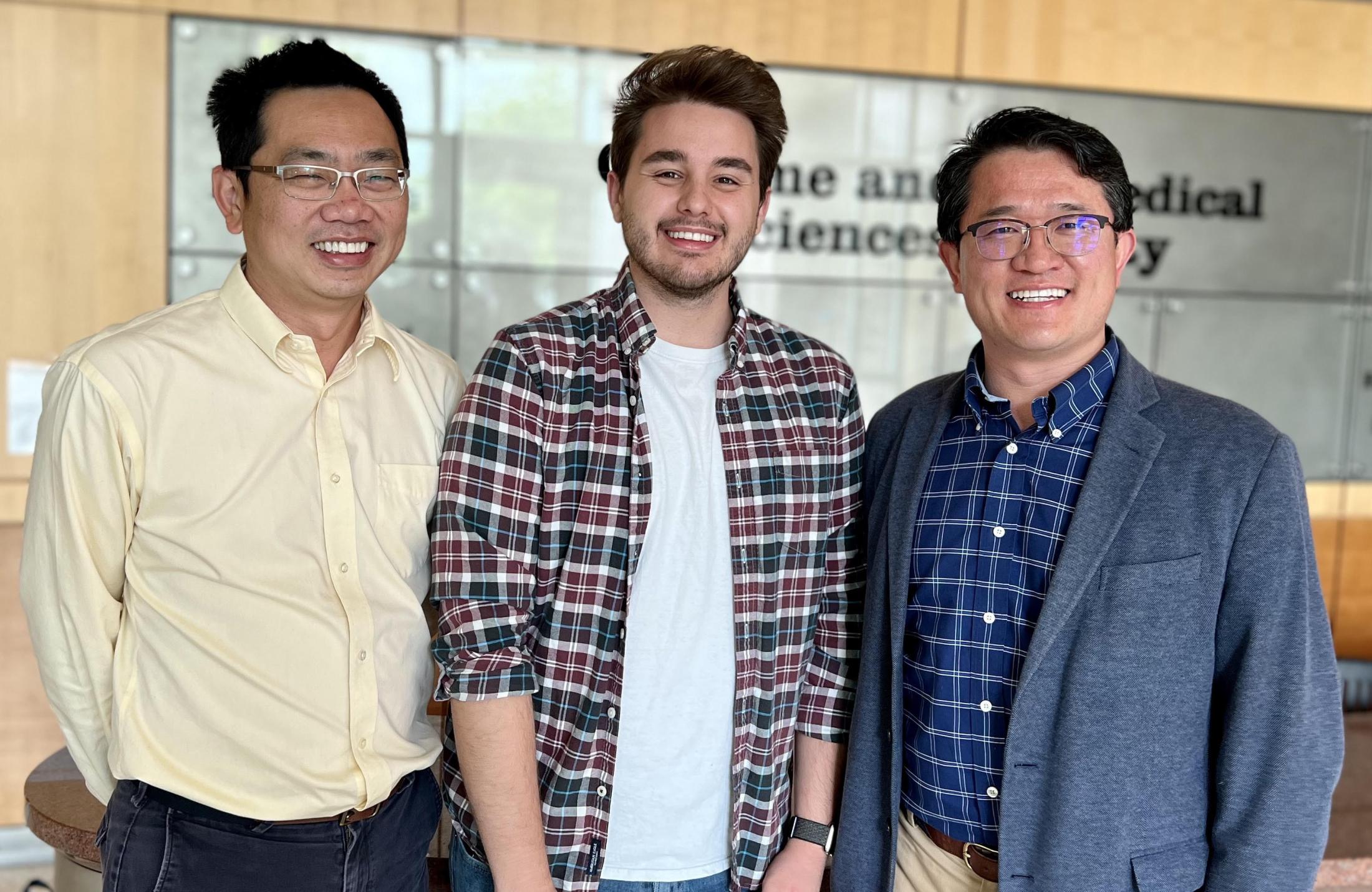
BME Doctoral Student Awarded Department of Defense Fellowship
Three-year fellowship will advance the use of synthetic biology approaches for traumatic brain injury research
UC Davis doctoral student Tanner Henson was recently awarded a fellowship from the National Defense Science and Engineering Graduate (NDSEG) Fellowship Program. The fellowship will provide three years of funding, starting in September 2022, which will allow Henson to expand his research on synthetic extracellular vesicles for traumatic brain injury.
“This fellowship is great validation for the hard work I have put into my research all these years, and that I’m pursuing a scholarly question that could have the potential to help others afflicted with traumatic brain injury,” Henson said. “It will allow me to explore and pursue new aspects of my research and translate my work to clinics, which is exciting.”
Henson’s current research focuses on the engineering of synthetic extracellular vesicles and how they could be used as therapeutics. Within mammals, cells throughout a body release “bubbles” called extracellular vesicles that are covered on the outside with lipids and various proteins. Henson will use high-throughput synthetic biology approaches to determine which proteins are essential for optimizing the therapeutic properties of synthetic vesicles.
Synthetic vesicles show promise because they can deliver therapeutic agents into cells. They also allow scientists to control for the specificity of target cells. While in its early phases, the project could impact broad medical areas, such as wound healing, neuroprotection for Alzheimer’s, and traumatic brain injury.
“What we are trying to do is to decode the biomolecular mechanisms of the perfect synthetic vesicles. Our high-throughput synthetic biology approach is a fresh take on existing methods,” said Henson, a Ph.D. student of the UC Davis biomedical engineering graduate group. “The prospect of having precision and high-throughput engineering of synthetic vesicles is pretty exciting. It is an approach that can be modified for many different applications.”

Henson said the graduate group structure and the collaborative spirit at UC Davis have allowed him to progress his research in the new field of synthetic biology. Henson is co-mentored by two principal investigators, Professor Cheemeng Tan, and Professor Aijun Wang, and has collaborated with researchers in both biomedical engineering and the medical school at UC Davis. He works in the Tan Lab, which studies synthetic cells for biotechnological applications, and the Wang Lab which focuses on developing innovative technologies and therapeutics that combine stem cell engineering and biomaterial engineering for clinical applications.
